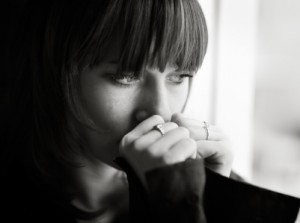Tuesday, June 11, 2013
Why Structure Is Important For Someone With Bipolar Disorder.
Before I was diagnosed with Bipolar Disorder, my life was absolutely chaotic. I was working full time, I had a full course load in school, and my home life was unstable. I had no structure. I had no discipline, and no focus. The slightest break in my schedule, sent me into a tailspin. I was overcome with so much anxiety, it sent me into a manic state.
After my diagnosis, I tried putting myself on a schedule, and my moods started to stabilize.
Four years later, I have noticed that my moods change when there is the slightest change in my routine. For example, when my back started giving me problems, and I was unable to do my job as a CNA, my moods began to change. One day, I would be full of anxiety, the next, I would be in a deep depression. I decided to get back into freelance writing, and I put myself on a work schedule. Since I have been doing that, I have been a lot more stable. Writing has given me an outlet, and putting myself on a schedule, and sticking my routine, has given me a feeling of purpose. I have a reason to get up in the morning, and a reason for hope.
Those of you with Bipolar Disorder, it is important to stick to a routine. This will help stabilize your mood swings, not to mention, give you a sense of purpose. What I have been doing is writing down a schedule of what I have to do during the day. Since I work from home, I set a time frame of when I write, when I shower, when I do dishes, make the bed, break for lunch, etc.
If you go to school, and/or work outside of home, write down everything that you need to do for the day, and focus on one thing at a time, even if it is as mundane as showering, or as serious as taking your medicine. Work your doctor/therapy appointments into your schedule. If your routine is interrupted, do not panic. Take a deep breath, and focus on the interruption.
Buy yourself a daily planner, download a schedule app onto your cell phone, download a scheduling program onto your computer, etc. Write everything down. I assure you, this will help stabilize your mood swings.
Good luck! :-)
(photo courtesy of: http://thumbs.ifood.tv/files/images/bipolar%20disorder.jpg)
Connecticut mom making waves with her gluten-free macaroons.
If you are gluten free and from CT (like I am), you will be delighted by this story. A mom in Enfield looked for a way to work and be a s...

-
If any of you are in the NYC area on May 19, you have to check out a comedy show being sponsored by the Celiac Disease Foundation. Tickets...
-
On Thursday, the US House Committee on Appropriations Subcommittee on Labor, Health and Human Services, Education and Related Agencies rel...
-
Celiac Disease awareness is near and dear to my heart, and it is important that we continue to raise awareness in hopes it helps the rest ...



